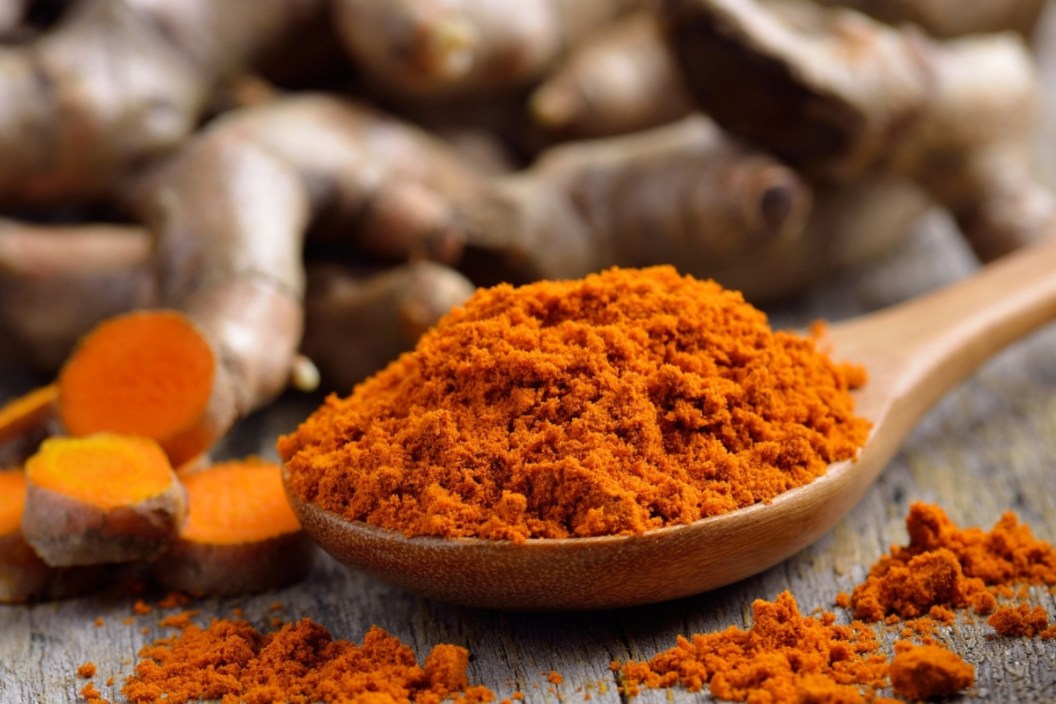As far as I'm concerned, turmeric is magic. Each sip of my morning turmeric tea makes me feel invigorated as I graciously drink to my health, and I'm not alone. The popularity of turmeric has caught on over the years and more and more Americans are jumping on board the turmeric train for its health benefits.
Videos by Wide Open Country
Turmeric Health Benefits
If you're not familiar with this perennial plant, it's a relative of ginger grown throughout India and parts of Asia. It has often been used in Ayurvedic medicine and is sometimes referred to as Indian saffron. The fresh rhizome is the part we eat or turn into a spice, capsule, extract, or tea. A golden yellow color, turmeric root is typically used in curry powder and gives golden milk its lovely hue. And it can do wonders for your health.
Curious? Just take a look and see what a little bit of turmeric can do for you.
1. It Fights Inflammation
Possibly the most well-known health benefit of turmeric is its anti-inflammatory properties. The active ingredient in turmeric, curcumin, is what's responsible for those anti-inflammatory effects we know and love. Also possessing antioxidant properties, curcumin can help fight inflammation in everything from a muscle sprain to arthritis. So if you find yourself trying to deal with chronic inflammation, drinking or eating turmeric can help.
Oh, and while we're on the subject, you may want to combine it with black pepper. Black pepper contains the bioactive compound piperine, which can greatly increase the absorption of curcumin.
2. It Helps with Arthritis
Speaking of arthritis, turmeric can reduce joint pain, stiffness, and inflammation associated with osteoarthritis and rheumatoid arthritis. According to the Arthritis Foundation, one clinical trial found patients experiencing knee pain from osteoarthritis had benefited long-term improvements from taking turmeric supplements.
My mom, herself is living proof of this. Suffering from osteoarthritis, she began drinking turmeric tea. After a few months, she visited the doctor and received news of improvement all thanks to the tea.
3. Aids those Suffering from Inflammatory Bowel Disease (IBD) and Irritable Bowel Syndrome (IBS)
View this post on Instagram
Inflammatory Bowel Disease occurs when your intestines become inflamed, the two most common forms being ulcerative colitis and Crohn's disease. While anti-inflammatory drugs are typically given to patients to help, this can cause undesirable side effects.
That's where turmeric can help. According to NCBI, one study showed patients with Crohn's who were given curcumin supplements had a reduction of the disease's activity. Another study proved those with ulcerative colitis had less of a chance of relapsing during therapy when given curcumin.
Turmeric doesn't stop there. It can also help with Irritable Bowel Syndrome. Researchers found after giving a group of volunteers turmeric extract, the prevalence of IBS was reduced by as much as 60 percent.
4. Glaucoma
Turmeric for Glaucoma? One group of researchers decided to put its active compound curcumin to the test. As the body doesn't dissolve curcumin easily, they infused eye drops with it and gave it to the control group. What they discovered was those who didn't receive the drops had a 23 percent reduction in their retinal cells. While I don't recommend making eye drops with turmeric powder, it is something to look into if you or a loved one are dealing with eye disease.
5. Diabetes
With diabetes comes a whole list of have-nots. Well here's one have, turmeric. The story goes like this. After dealing with diabetes for 16 years, a man began ingesting a daily dose of 5 grams of turmeric powder and over a period of time guess what happened? His blood sugar greatly decreased.
He then ceased taking turmeric for a week and his blood sugar levels went right back to where it was before ingesting the golden spice. Upon resuming the normal 5 grams, it decreased again.
While we're not saying you should be lapping up turmeric ice cream or ignoring your healthcare advice, you may want to consider the benefits of adding it to your food or taking turmeric supplements if you suffer from diabetes.
6. May Help Fight Alzheimer's Disease
With all this talk about inflammation, you're probably wondering why Alzheimer's is on this list. This neurodegenerative disorder affecting brain function involves the deposit of amyloid plaques. According to the Alzheimer's Society, turmeric's active ingredient curcumin has shown to break up this terrible plaque as well as aid in the prevention of it. The only issue is clinical studies have yet to prove this. While more research may be needed, it's a possible candidate to help the fight so it's worthy of mentioning.
7. Helps the Fight Against Cancer
View this post on Instagram
We are constantly waging a war against the brutality of cancer and it appears that turmeric is on our side. Many studies have been conducted to determine how turmeric's active ingredient curcumin effects various forms of cancer. What research has shown is curcumin possesses anticancer effects, which enable it to prevent cancerous cells from growing as well as kill them off.
According to Cancer Research UK, it has the "best effects on breast cancer, bowel cancer, stomach cancer, and skin cancer cells." While more clinical trials are needed, anything helping us win the battle against cancer is welcome with open arms.
The health benefits of turmeric don't stop here. It's been proved possibly effective for high cholesterol, Osteoarthritis, and itching. The natural anti-inflammatory is an alternative medicine to use and can be complementary to what you are already taking. Always listen to your health care provider before trying a new medication.
To find out more about current clinical trials testing out the benefits of turmeric, go to clinicaltrials.gov.




